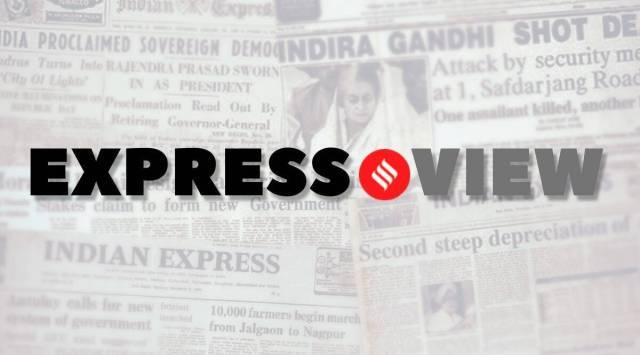Opinion G20 summit: India’s global moment
G20 summit marks India’s emergence as a voice to be heard, creating possibilities that will require bipartisan reflection
 The 1983 convocation, in contrast, represented only the developing countries — the first world (the capitalist West) and the second (the socialist East) were not present.
The 1983 convocation, in contrast, represented only the developing countries — the first world (the capitalist West) and the second (the socialist East) were not present. Irrespective of whether it concludes with a joint declaration on Sunday, the G20 summit that begins today in Delhi marks an inflexion point in India’s evolution in multilateral diplomacy. The Delhi summit will also underline India’s growing potential for leadership on global issues. Drawing parallels between this summit and the Non-Aligned meet in Delhi in 1983 makes little sense. At the G20 summit, leaders from the top global economies and several international institutions will deliberate on the major challenges confronting the world today.
The 1983 convocation, in contrast, represented only the developing countries — the first world (the capitalist West) and the second (the socialist East) were not present. China, which was opening up after Mao’s economic and political excesses, was not present. If the NAM in the 1980s was a wannabe global trade union, the G20 is the closest to a steering committee to manage the global order.
The NAM in 1983 was also a deeply divided house. Outside the oil-rich states in West Asia and the handful of export-oriented East Asian states, the Global South was a gloomy economic terrain in the 1980s. India had little to offer in addressing the challenges facing either the global South or the world as a whole.
Admittedly, today there is no shortage of global challenges — from the war in the heart of Europe to climate change. But unlike 40 years ago, India is one of the world’s largest economies and is no longer marginal to the great power calculus. This structural change is at the root of the Indian diplomatic transition — from rhetoric on global issues to leadership in shaping the international discourse. To be sure, India is in no position to end the war in Ukraine by resolving the differences between Russia and the West. Nor can it please an expansionist China, which seems eager to be a spoiler at the G20 summit. But India’s voice on the major conflict of the day — in Ukraine — matters as Russia and the West seek India’s understanding and support. Delhi has also helped redefine the discourse on Ukraine by focusing on the consequences of the European war on the developing world. Delhi can also take some credit for putting the Global South back into the international discourse.
Even more consequential is India’s role in widening the global agenda on development. Unlike in the 1980s, when India was a mere petitioner for a new international economic order, Delhi is actively shaping today’s discourse on sustainable development and managing the global economic order. Unlike its defensive multilateral diplomacy 40 years ago, Delhi today builds cross-cutting global coalitions on solar energy and disaster resilience.
The G20 summit could see support for India’s new initiatives on promoting digital public infrastructure, managing the global debt burden, and strengthening institutional support for sustainable development. This extraordinary moment in India’s multilateral engagement should be a cause for national celebration rather than partisan bickering. Intensive bipartisan reflection is required on the new possibilities for India’s global leadership and the responsibilities that come with the country’s rise on the global stage. That burden will not end with the Delhi summit.



